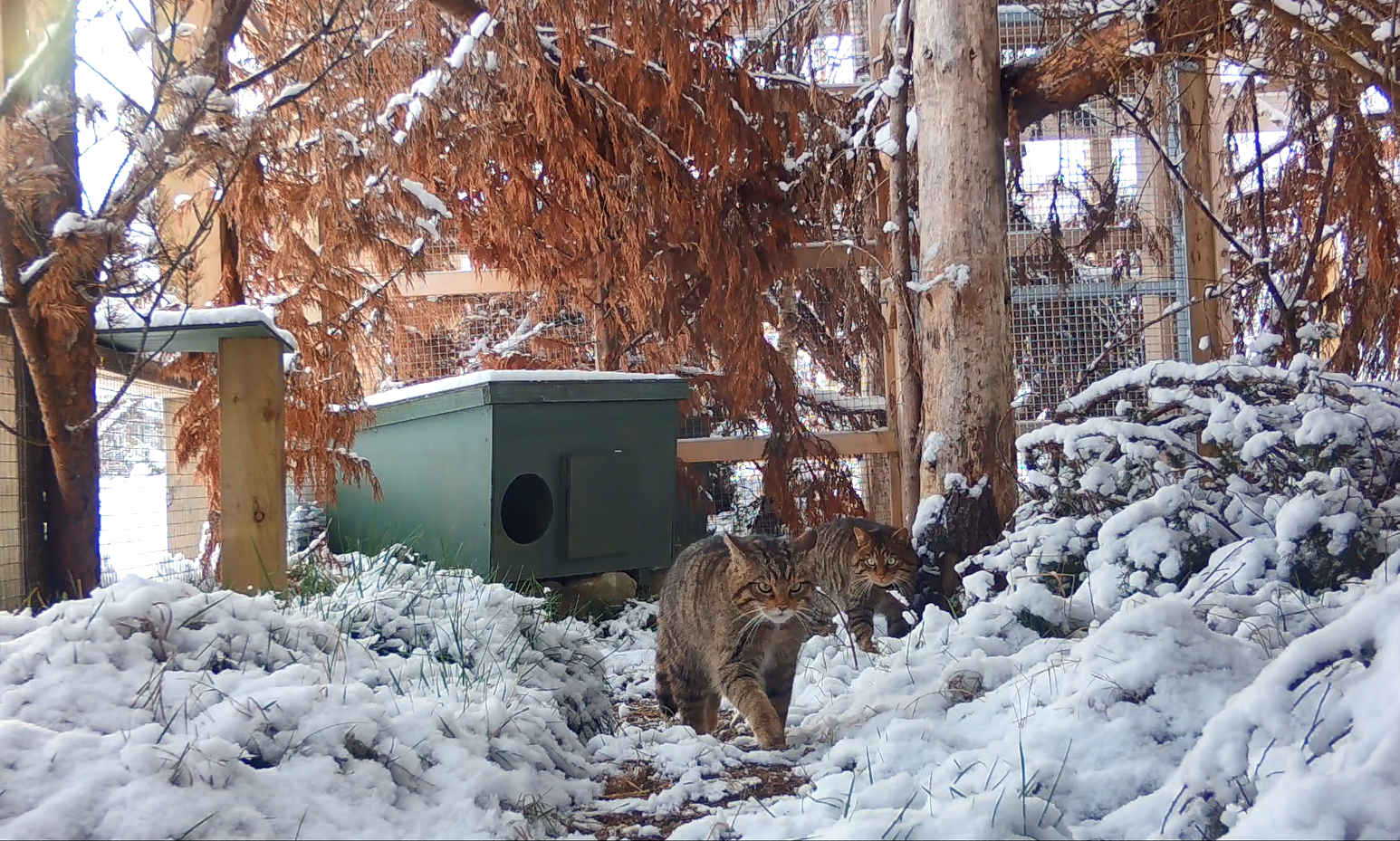Wildcats paired up in the hope their offspring can be released into the wild
The animals are part of a breeding programme at the Highland Wildlife Park, near Kingussie.

Your support helps us to tell the story
From reproductive rights to climate change to Big Tech, The Independent is on the ground when the story is developing. Whether it's investigating the financials of Elon Musk's pro-Trump PAC or producing our latest documentary, 'The A Word', which shines a light on the American women fighting for reproductive rights, we know how important it is to parse out the facts from the messaging.
At such a critical moment in US history, we need reporters on the ground. Your donation allows us to keep sending journalists to speak to both sides of the story.
The Independent is trusted by Americans across the entire political spectrum. And unlike many other quality news outlets, we choose not to lock Americans out of our reporting and analysis with paywalls. We believe quality journalism should be available to everyone, paid for by those who can afford it.
Your support makes all the difference.Sixteen wildcats are being paired up to have kittens that will be released into the wild in Scotland next year.
The cats are part of the first ever breeding season at the Saving Wildcats breeding for release centre in the Royal Zoological Society of Scotland’s Highland Wildlife Park, located near Kingussie.
The project is working to restore the species in Scotland, which is considered critically endangered, by breeding and releasing them into the wild.
Kittens from this season, which could be born as early as spring, will be among the first to be released in parts of the Cairngorms in 2023.
Wildcats are Scotland's most iconic animal but also one of our most endangered
David Barclay, Saving Wildcats conservation manager, said several of the wildcats are now paired and settled – just in time for Valentine’s Day – and are showing encouraging mating behaviours.
“Wildcats are Scotland’s most iconic animal but also one of our most endangered,” he said.
“Without future releases, the wildcat’s days in Scotland are numbered.
“Once widespread in Britain habitat loss, hunting and inter-breeding with domestic cats have all taken their toll, leaving this incredible species on the verge of extinction.
“We are hopeful that kittens born around April to May will be among the first released into carefully selected locations in the Cairngorms.”
Saving Wildcats is led by the Royal Zoological Society of Scotland in collaboration with other agencies including NatureScot, Forestry and Land Scotland and the Cairngorms National Park Authority.
The six-year project is supported by £3.2 million of EU funding and co-funded by several partners including NatureScot and the Scottish Government’s zoo and aquarium conservation fund.